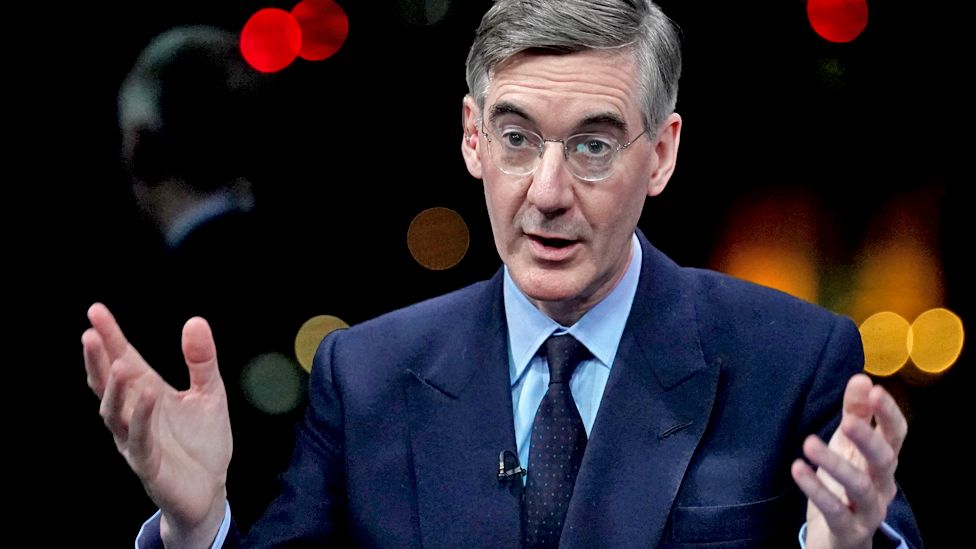ARTICLE AD BOX
 Image source, PA Media
Image source, PA Media
By Anthony Reuben, Tamara Kovacevic and Lucy Gilder
BBC Verify
The government has been defending its approach to asylum after its plan to send some asylum seekers to Rwanda was ruled unlawful by the Supreme Court.
We've looked at some of the claims made following the ruling.
"The UNHCR processes Libyan refugees in Rwanda" - Jacob Rees-Mogg
Mr Rees-Mogg defended the government's Rwanda scheme on BBC's Question Time.
He said that the UN High Commission for Refugees (UNHCR) processes refugees in Rwanda. He argued the government's plan was "not that outrageous a thing to do, otherwise the UNHCR, which doesn't want the UK to do it, wouldn't be doing it itself".
It is true that the UNHCR, with financial support from the EU, has transferred refugees from Libya to Rwanda under a scheme called the Emergency Transit Mechanism (ETM).
However, the ETM is voluntary, not compulsory, like the UK's plan. The ETM offers vulnerable refugees, taken into detention by the Libyan authorities, a choice to have their application processed in Rwanda.
Libya - a major transit route for those hoping to reach Europe - is not considered a safe country for refugees.
People moved from Libya to Rwanda by the UNHCR are given assistance to resettle elsewhere should they choose to do so. It says that "as of March 2023, 932 refugees from the ETM centre have been resettled to Canada, Sweden, Norway, Finland, France, Belgium, the Netherlands and USA".
'The number of crossings is down by a third' - Rishi Sunak
The prime minister was talking about small boat crossings at prime minister's questions.
He's made "stopping the boats" one of his five key pledges in government, which we've been tracking.
As at 13 November, 27,284 people had been detected crossing the English Channel in 2023, according to the Home Office.
At the same point in 2022, almost 42,000 people had been detected, so the number crossing is indeed down by a third.
'[Labour's plan is] a cosy deal with the EU, which would see the UK accept 100,000 illegal migrants' - Rishi Sunak
Rishi Sunak criticised the Labour leader's plan to stop small boats coming to the UK.
Keir Starmer has said he would negotiate a returns agreement with EU countries to send back some failed asylum seekers - if Labour wins power.
Mr Sunak's claim is based on an assumption that Labour would have to take 13% of all asylum seekers arriving in the EU as part of such an agreement.
The Conservatives have said this is because the EU has a policy of sharing asylum seekers between countries based on population size. They say this would mean the UK taking over 100,000 of them a year.
But although the EU has been discussing for years how to share responsibility for refugees, no deal based on population is in place.
Labour has said it would not - and could not - sign up to an EU quota scheme because the UK is not a member state, so any agreement would have to be outside that.
'The government has never succeeded in actually getting a successor to what was known as the Dublin III agreement, which meant that people here with no right to be here could then be removed' - Nick Thomas-Symonds
Mr Thomas-Symonds - a Labour MP - was speaking on BBC Radio 5 Live after the Supreme Court's judgement.
He was referring to an EU scheme - Dublin III - which allows member states to return failed asylum seekers to other EU countries, taking into consideration factors such as family reunion and irregular entry.
The scheme ended in the UK after Brexit in January 2021.
But Home Office data shows the numbers involved were pretty small and actually more people ended up coming to the UK under this scheme than were removed in the final six years it was operating in the UK.
From 2015 to end of 2020, 3,961 people were transferred to the UK and only 1,763 were removed under the scheme.
'Some 20,000 people have been returned this year' - Rishi Sunak
The prime minister was talking about the number of people that have been returned to other countries from the UK.
Mr Sunak did not make clear what type of return he was referring to, but the combination of voluntary and enforced returns this year does add up to about 20,000.
The latest data shows that 5,095 people were forcibly removed from the UK between January and October 2023. A further 15,204 left the country voluntarily in the same period.
About a fifth of the 20,299 people returned so far in 2023 were Albanians.
Not all of the 20,000 people returned were failed asylum seekers - some of them were foreign national offenders.

 1 year ago
24
1 year ago
24








 English (US) ·
English (US) ·